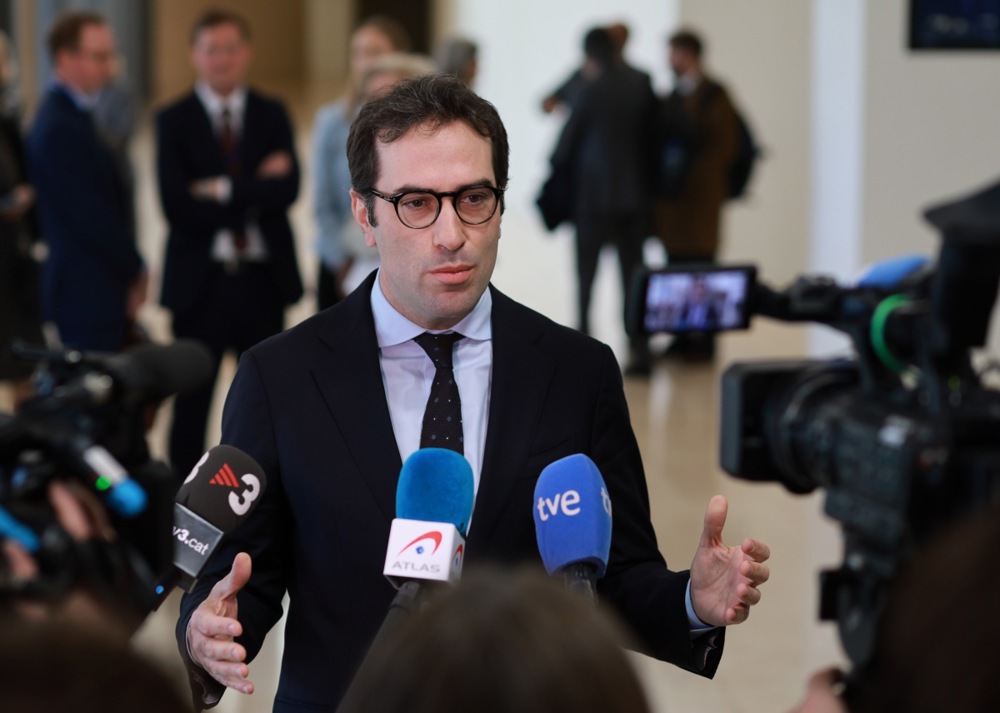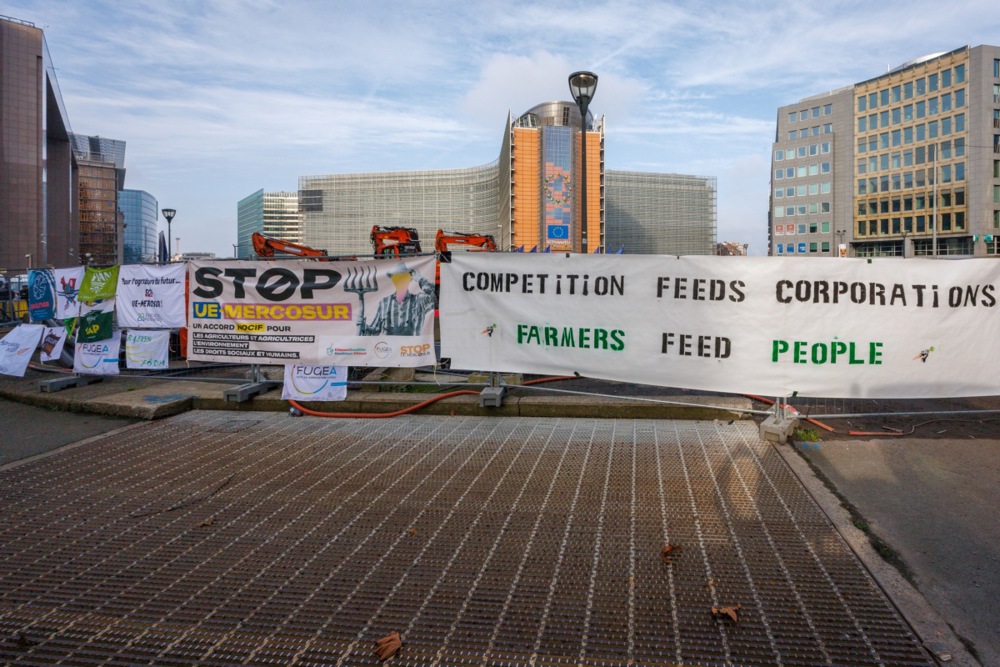France’s National Assembly has unanimously voted to reject the long-stalled European Union-Mercosur free-trade agreement
In a rare display of cross-party unity, the move piles pressure on Brussels as it races towards a potential vote in the European Council.
The non-binding resolution passed with an overwhelming majority during the evening session on November 25.
Or more precisely, as LCP-Assemblée nationale reported, the proposal was approved by 244 votes to 1. The only MP who voted against it, Socialist Party MP Dieynaba Diop, said she had made a mistake and was in fact in favour of the resolution.
Tabled by the left-wing La France Insoumise (LFI) party, it calls on President Emmanuel Macron’s government to block the deal in its current form, citing threats to French agriculture, environmental standards and public health.
LFI also asked for the matter to be referred to the Court of Justice of the European Union (CJEU) to verify the conformity of the agreement.
Matthias Tavel (LFI), the rapporteur for the resolution, lambasted Macron for what he called a U-turn on the deal.
“Less than a year ago, Emmanuel Macron called this agreement unacceptable, a bad text,” Tavel said. “And now, here he is declaring that it’s all a step in the right direction. Yet, not a single line of the agreement has been changed.”
Socialist MP Mélanie Thomin warned of the reintroduction of banned substances into European food chains, including growth hormones, antibiotics and pesticides outlawed in the EU.
National Rally (RN) MP Julien Limongi branded the pact a “stab in the back” for French farmers, while Union of the Right MP Vincent Trébuchet decried it as a “national betrayal”, accusing France of becoming “a bargaining chip in the global marketplace”.
Renaissance party MP Benjamin Haddad, the Minister Delegate for European Affairs, repeated that the agreement was “not acceptable as it stands”.
The Mercosur pact, negotiated over 25 years between the EU and the South American bloc comprising Argentina, Brazil, Paraguay, and Uruguay, aims to eliminate most tariffs on goods, creating a vast market of more than 700 million consumers.
Proponents, including European Commission President Ursula von der Leyen, argue it would boost economic growth and also offset trade losses from US tariffs under President Donald Trump.
The talks on Mercosur, though, have ignited fierce opposition across Europe, particularly in France, where farmers fear an influx of cheap, lower quality beef, poultry and sugar, potentially undercutting local producers.
Earlier in November, more than 100 MEPs sought a CJEU opinion on whether the agreement complies with EU treaties, particularly regarding the precautionary principle for health and environmental risks.
Agriculture minister Annie Genevard reiterated a few days ago that the deal “does not protect the interests of farmers” without robust safeguards, such as mechanisms to block destabilising imports and “mirror clauses” enforcing equivalent production standards.
A government spokesperson emphasised that ratification requires a qualified majority in the European Council — 15 member states representing 65 per cent of the EU population —leaving France short of a veto but hopeful of building alliances with sceptical nations.
Yet, momentum for the deal persists. Von der Leyen has signalled hopes of finalising it before a Mercosur summit in Uruguay on December 5 and 6, despite Macron’s political woes following his government’s collapse in a no-confidence vote.
Last year, Brazil’s President Luiz Inácio Lula da Silva dismissed French objections, insisting the EC holds the reins.
Voices in Germany and Spain, eyeing markets for cars and chemicals, continue to press for approval.
French farmers view the European Union-Mercosur trade deal, endorsed by European Commission President Ursula von der Leyen, as a “betrayal” of European agricultural interests. https://t.co/F99n6ycKhn
— Brussels Signal (@brusselssignal) December 9, 2024





